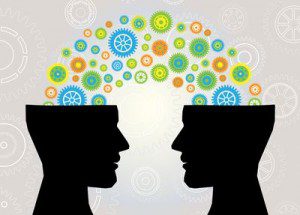| Online: | |
| Visits: | |
| Stories: |

| Story Views | |
| Now: | |
| Last Hour: | |
| Last 24 Hours: | |
| Total: | |
Stories In Your Head – When They Help and When They Don’t
13th March 2014
By Jack Adam Weber L.Ac., Dipl. C.H.
Contributing Writer for Wake Up World
The stories we have about one another can be dangerous. Many of these stories are generated by emotional triggers, which generate our beliefs, causing us to bias our view and twist information to support our bias. Or, we just conveniently miss what is communicated, or assume we know what is meant by something someone else says or does, when in fact, something completely different has been communicated in plain English (or whatever language we understand best on a given day). What’s worse is that we then act on our beliefs and the emotions generated by them, often doing harm.
We also create beliefs and generate emotions based on our stories. We need good thinking to separate the logistical facts of a situation from our reactions, beliefs, and stories about one another. Without this critical thinking, and without the skills and tools to consciously process our emotions so that our thinking can remain relatively clean and free from constant unconscious emotional bias, we can end up in a tangled mess in which we can’t see or hear what is really going on outside the stories in our head and the reactions in our body.
Because our emotional reactions themselves are often based in getting the facts wrong (either deliberately or through innocent misunderstanding), we have to be astute to think well, to inquire with other and ourselves. I discuss this at length in my essay “Re-Thinking Love: Why Our Hearts Must Also Be Minded.” For example, say I believe that my girlfriend doesn’t want to go out to dinner with me (due to whatever stories and past hurts I unwittingly still carry), and I conclude that she is selfish and thereby I treat her poorly, and even justify doing so. Even though she tells me she is just tired, I don’t register this truth and decide that it’s not for this reason. What I have effectively done is risk living in disaccord with reality, acting unfairly to my partner, and adding to the bad story in my head.
This story is also just one example of why “being in your heart” and relying primarily on feelings and “intuition” to determine opinions, beliefs, and actions is to live in disaccord with external reality and to perpetuate relationship suicide. Of course, it’s true that she could not be telling the truth, but to determine this I need to do a little more research and be patient. To be fair, I can’t decide she is lying until I know more. This is also an example of one of the jagged edges of being in relationship that doesn’t get to be solved in a jiffy. Hopefully, we choose partners that can meet our needs for honesty most of the time and that we create the space and trust for this to happen.
Previous articles by Jack Adam Weber:
- Relationships: The Costs of Staying When We Should Leave
- Emotional Work
- Choosing a Partner – How to Avoid Relationship Suicide
- Re-Thinking Love: Why Our Hearts Must Also Be Minded
- Spirituality – Reality Check
- 11 Crucial Tips for Better Digestive Health
- Shadow Work: Becoming a Sustainable Light Worker (Part 1)
- Oneness in Action: The GMO Eradication Movement
- After the Hurricane: Lessons from the Heart of Nature
- Relationships: How They Can Make Us Happier
- Heartbreak – Loving Ourselves Through Difficult Times
-
[FACEBOOK]: http://www.facebook.com/joinwakeupworld (An interactive community of over 1,700,000)
[PINTEREST]: http://pinterest.com/wakeupword/
[TWITTER]: http://twitter.com/joinwakeupworld
[YOUTUBE]: http://www.youtube.com/joinwakeupworld
[GOOGLE PLUS]: https://plus.google.com/
[WEBSITE]: http://wakeup-world.com




